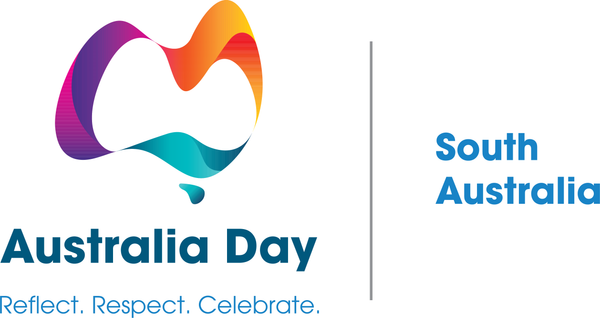Posted on November 10 2017

Australia Day Ambassador Des Ryan with Citizen of the Year Recipients for the District Council of Karoonda East Murray
The following piece featured in SA Life magazine (November 2017) by Australia Day Ambassador Des Ryan
A war cry goes up demanding that Australia Day be changed to some date other than January 26, the day when the First Fleet sailed into Sydney Harbour in 1788. To mark the date with a national celebration, it’s said, is an insult to indigenous Australians for the abuses they have suffered since white arrival.
Okay. No doubt the Aborigines had better days. January 26 is a thorny reminder of the exact tipping point when their lives changed forever. The first Aboriginal Day of Mourning was staged in Sydney on Australia Day 1938. It has since morphed into Invasion Day or Survival Day.
No one can pretend that bad things did not happen to the Aborigines. We know for a categorical fact that children were stolen from their families despite the government and the churches. Or because of them. Aboriginal people were swept aside, down and under.
Out of sympathy for black mistreatment, three suburban councils in Melbourne have cancelled their Australia Day ceremonies. All three are dominated by Greens members, with the support of the Socialist Alliance. In their struggle for political relevance, they are using local government to push a radical agenda that would get nowhere in a real parliament. Cancelling Australia Day is them listening only to themselves.
There is pushback. The prime minister has removed the councils’ hosting rights for citizenship ceremonies, which I think is a shame. It only punishes new Australians who were looking forward to receiving their Certificate of Citizenship at a civic ceremony in front of family and friends. As we know, these citizens are more entitled to sit in the federal parliament than some others who were elected.
The uglier backlash is the sight of ultra-nationalists who bully their way into council chambers roaring fury through megaphones and waving placards with swastikas painted on them. It’s a crude act of intimidation by a gang of angry white men, who have no eyes or ears for the Aboriginal situation.
I am an Australia Day ambassador. Each year I attend a sausage sizzle somewhere in SA on January 26 and say a few words about what it means to be Australian. It’s always a festive occasion.
Nothing I say will change history, so I don’t try. I approach the ambassador’s role with simple good faith to celebrate our amazing luck to live in this country. I say some words about what it means to be Australian and how there is no such thing as a typical Aussie. I am not delivering a statement of white supremacy or colonial mastery.
Just because I am an ambassador does not mean I am an arch-nationalist. I am always wary of nationalism or patriotism or jingoism. What I fear most is that the right-wing extremists will claim Australia Day as their day, wrapping themselves in the national flag as a symbol of white rule, a cloak for their contempt and ranting racism.
My latest outing as an ambassador was at Mantung, a dusty speck in the Mallee. Drive to Nildottie, turn east, and the mobile phone coverage soon drops out. A land of limestone, stubble and scrub. Mantung farmers carry the physical wounds of their working lives. Busted knees. Popped vertebrae. During the summer harvest, they sit in tractor cabins as hot as an oven, never re-gassing the air conditioner for fear of being thought weak.
Not once did I hear anyone at Mantung suggest Australia Day should be changed from January 26. I think the date should be left where it is. There is no grassroots support for change that I can detect.
Our lives are informed by our history. January 26 serves of a reminder of the journey we have travelled together since white arrival, for good or ill. It’s fine with me if the occasion also gives Aboriginal concerns an extra airing.
When Senator Pauline Hanson told migrants to ‘go back where you came from’, I thought of a line by South Australian Elder Lowitja O’Donoghue, who said there was no choice but to get along with white Australia. ‘It’s not like we can send you all back on the boats you came here on.’ Lowitja was Australian of the Year in 1984.
Black faces are notably absent from the council fracas. Aborigines are not one closed mind against Australia Day. Many outstanding indigenous role models have been recognised in the Citizen of the Year awards. A couple of current SA ambassadors are Aboriginal. Like Lowitja, they know how it feels to be marginalised and they’d rather be the effective agents for change, as proud original Australians.
We have a way to go in understanding what the Aborigines have gone through. There is no peace of mind. The responsibility for resolving the tensions is communal. The January 26 debate is part of the process.
Citizenship is a cooperation pact between the government and the people. The government has a duty of care to protect its citizens. The state does not disown, abandon or damage its own people. It’s a notion worth remembering on Australia Day regardless of when it occurs.

0 comments